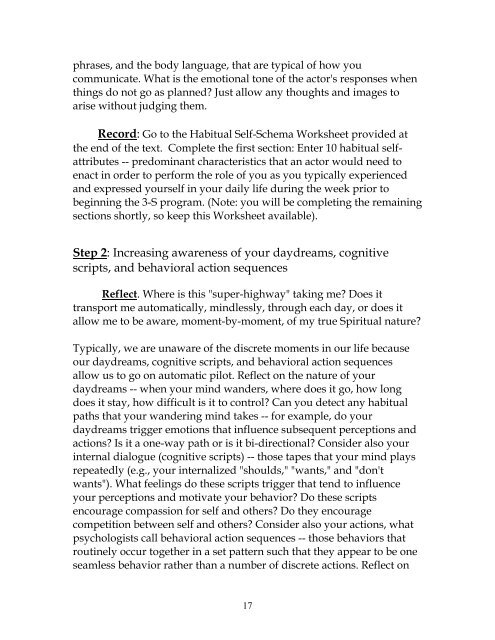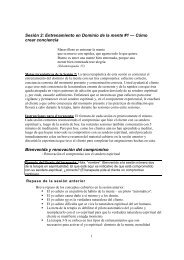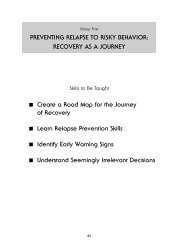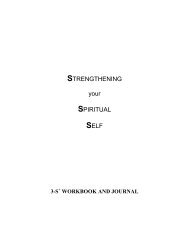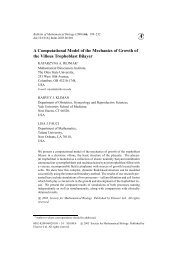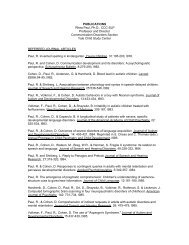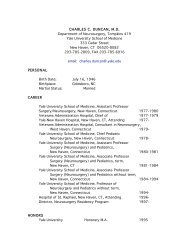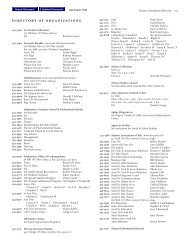The Spiritual Self Schema (3-S) Development Program
The Spiritual Self Schema (3-S) Development Program
The Spiritual Self Schema (3-S) Development Program
You also want an ePaper? Increase the reach of your titles
YUMPU automatically turns print PDFs into web optimized ePapers that Google loves.
phrases, and the body language, that are typical of how you<br />
communicate. What is the emotional tone of the actor's responses when<br />
things do not go as planned? Just allow any thoughts and images to<br />
arise without judging them.<br />
Record: Go to the Habitual <strong>Self</strong>-<strong>Schema</strong> Worksheet provided at<br />
the end of the text. Complete the first section: Enter 10 habitual selfattributes<br />
-- predominant characteristics that an actor would need to<br />
enact in order to perform the role of you as you typically experienced<br />
and expressed yourself in your daily life during the week prior to<br />
beginning the 3-S program. (Note: you will be completing the remaining<br />
sections shortly, so keep this Worksheet available).<br />
Step 2: Increasing awareness of your daydreams, cognitive<br />
scripts, and behavioral action sequences<br />
Reflect. Where is this "super-highway" taking me? Does it<br />
transport me automatically, mindlessly, through each day, or does it<br />
allow me to be aware, moment-by-moment, of my true <strong>Spiritual</strong> nature?<br />
Typically, we are unaware of the discrete moments in our life because<br />
our daydreams, cognitive scripts, and behavioral action sequences<br />
allow us to go on automatic pilot. Reflect on the nature of your<br />
daydreams -- when your mind wanders, where does it go, how long<br />
does it stay, how difficult is it to control? Can you detect any habitual<br />
paths that your wandering mind takes -- for example, do your<br />
daydreams trigger emotions that influence subsequent perceptions and<br />
actions? Is it a one-way path or is it bi-directional? Consider also your<br />
internal dialogue (cognitive scripts) -- those tapes that your mind plays<br />
repeatedly (e.g., your internalized "shoulds," "wants," and "don't<br />
wants"). What feelings do these scripts trigger that tend to influence<br />
your perceptions and motivate your behavior? Do these scripts<br />
encourage compassion for self and others? Do they encourage<br />
competition between self and others? Consider also your actions, what<br />
psychologists call behavioral action sequences -- those behaviors that<br />
routinely occur together in a set pattern such that they appear to be one<br />
seamless behavior rather than a number of discrete actions. Reflect on<br />
17


